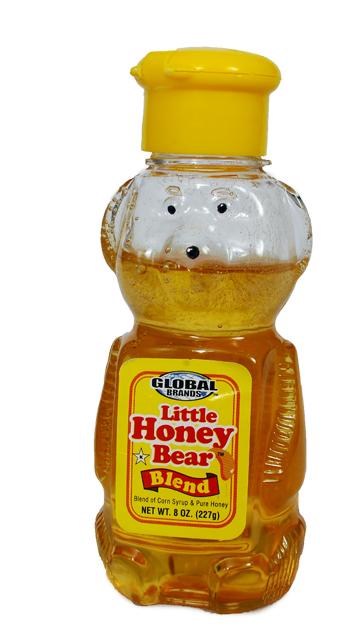Consumers unknowingly purchase honey which is has been altered in some way, and is no longer considered to be pure honey.
The honey standards board has set up new measures to curb unscrupulous sellers from selling adulterated honey. Honey is considered to be adulterated, or fake, if any product has been added to it prior to the sale of the honey. Adulterated honey bottles are mislabeled in such a way that it looks like a pure honey bottle which easily deceives the consumer who unknowingly buys that adulterated honey.
The honey industry is looking to be proactive and take whatever steps are necessary to keep it from becoming a widespread problem, according to John Ambrose, interim dean of undergraduate academic programs and an entomologist and bee expert, who sits on the newly created honey standards board for the State of North Carolina. Adulterated honey is cheap and easy to make.
“People use corn syrup as a honey substitute. It costs one-fifth of the pure honey. We are trying to regulate new ways to help the honey industry, already facing problems due to the collapse of honey colonies in past two decades, to stop adulteration of honey,” Ambrose said.
Last year, the honey board was set up in Florida. Since then, California and Wisconsin have followed. North Carolina is the most recent state to create a honey standards board.
“Each state has decided to make the standards similar to each other so that when the federal government decides to put a standard, these individual states’ standards can be easily rolled in,” Ambrose said.
According to Ambrose, the honey standards board relies partially on bee keepers to keep watch for adulterated honey.
“We wrote the standards for it and in July last year, at the summer meeting, we took it to the N.C. Department of Agriculture for approval,” Ambrose said. “The Agriculture Department does not want to act as honey police and investigate the problems on their own because it may not be always feasible. The way we work across the state is that, the bee keepers themselves are on a lookout for chances of adulteration.”
Labs in Texas are certified to determine if honey is pure or if it has been altered, according to Ambrose.
“The Honey Board takes samples of honey that is thought to be adulterated and sends it to certified labs in Texas and other states for analysis. If adulteration is proved, the Agriculture Department is informed about that,” Ambrose said.
If a seller is found guilty of selling adulterated honey, the seller is warned against selling fake honey or the mislabeling of honey.
“If the seller doesn’t refrain from selling bad honey bottles in spite of warnings, taking legal action is our last step,” Ambrose said.
In North Carolina there are about 10,000 bee keepers who breed 100,000 to 200,000 colonies of honey bees and most of the bee keepers are willing to participate for this cause, according to Ambrose.
“In past two decades, there has been a severe loss of bees throughout the country,” Ambrose said. “California farmers, who produce the highest percentage of almonds, have to pay to migrate the bees from other states in order to keep the business going.”
According to Ambrose, altered honey is generally sold as sourwood honey
“Anything added to honey makes it adulterated. It can be water or corn syrup or anything else. It is important that honey remains in pure state until it reached the consumer,” Ambrose said. “Many times, adulterated honey is sold as sourwood honey, one of the finest forms of honey which costs two or three times the regular honey.”
In the early 1980’s, at the Farmers Market in Raleigh, a family from Mississippi went to the dealers with truck load of adulterated honey saying that it was sourwood honey, which is normally found in mountainous regions. The family from Mississippi convinced the dealers to sell their honey and made profit out of that.
“At that time, the government was slow to respond and act against them. But, later they were arrested and charged when they tried to do the same thing in Tennessee,” Ambrose said.
Honey has lot of medicinal benefits and there are experiments which prove that it is useful against ailments such as allergies and hay fever, according to Ambrose. Pure honey has a sweeter flavor than honey which has corn syrup in it.
“Pure honey has a distinctive flavor which is not found in the honey mixed with corn syrup. One teaspoon of corn syrup honey is equivalent to two-thirds of pure honey,” Ambrose said.
Amey Deshpande, a graduate student in electrical engineering, said having standards and rules against adulterated honey will create awareness amongst the customers too.
“The mislabeling especially makes it difficult to distinguish between pure and impure honey,” Deshpande said. “With these standards put in place, I think I will be more alert while buying honey bottles.”








